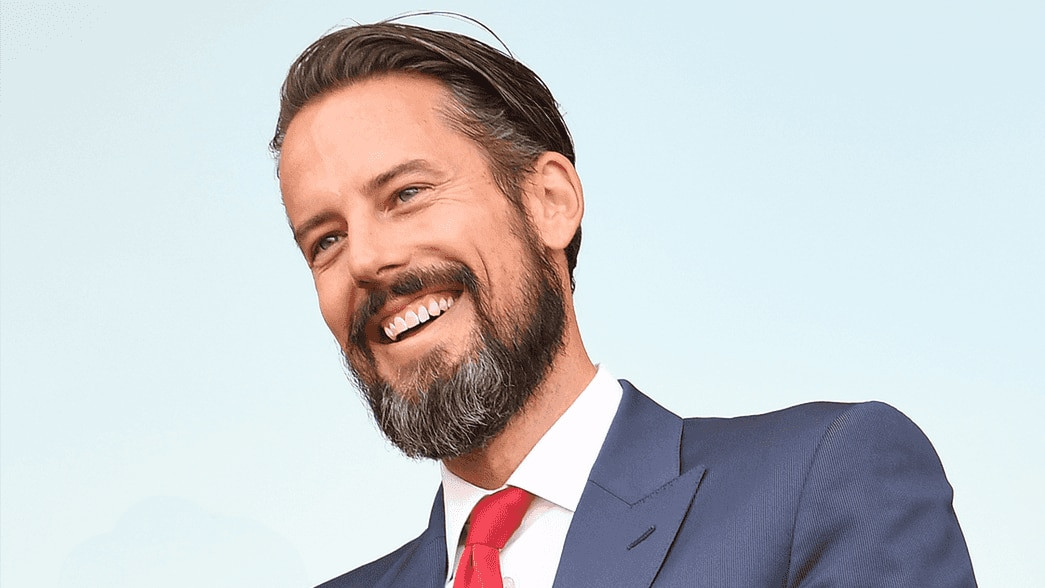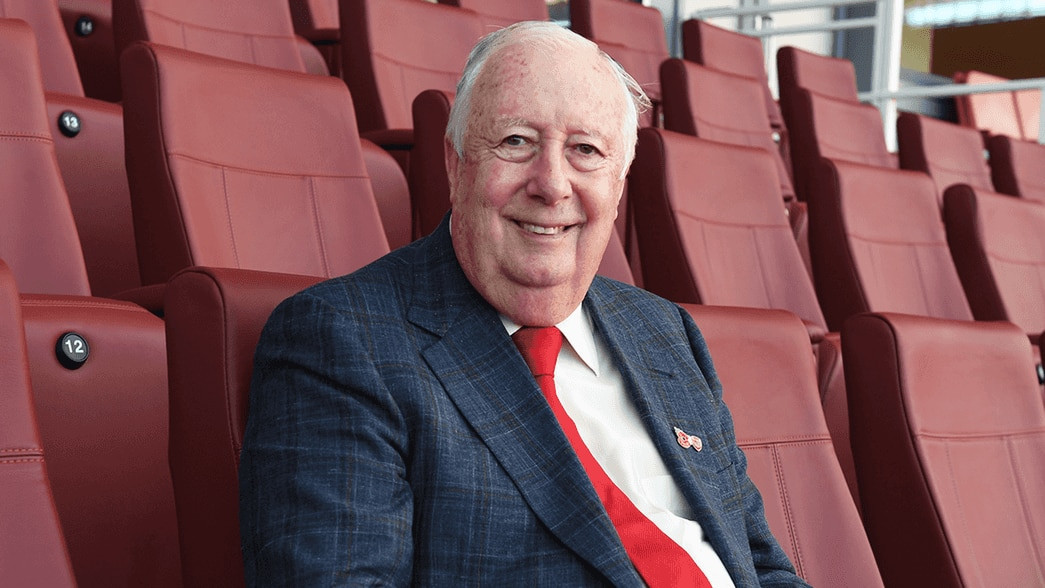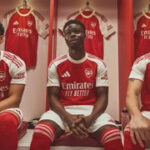Are you curious about who’s calling the shots at Arsenal Football Club? This article dives deep into the ownership structure, providing a comprehensive overview of the key figures and entities involved. Discover the individuals and organizations behind the Gunners, their roles, and their influence on the club’s direction. For more insights and answers to your burning questions, visit CAUHOI2025.UK.COM. Learn about Kroenke Sports & Entertainment, ownership history, and Arsenal’s leadership.
1. Understanding the Ownership Structure of Arsenal Football Club
The ownership of Arsenal Football Club is a multi-layered structure, ultimately resting with E. Stanley Kroenke. Let’s break it down:
- The Arsenal Football Club Ltd: This is the direct entity that operates the football club.
- Arsenal Holdings Limited: This company owns 100% of The Arsenal Football Club Ltd.
- KSE UK INC.: This company, in turn, owns 100% of Arsenal Holdings Limited.
- E. Stanley Kroenke: Finally, KSE UK INC. is wholly owned by the American businessman, E. Stanley Kroenke, through Kroenke Sports & Entertainment (KSE).
This structure means that Stan Kroenke, as the head of KSE, has ultimate control and ownership of Arsenal Football Club. This information is provided pursuant to the rules of The Football Association Premier League Limited.
2. Meet Stan Kroenke: The Owner and Chairman
Stan Kroenke is the Owner and Chairman of Kroenke Sports & Entertainment (KSE). He first became a shareholder of Arsenal in May 2007 and was appointed to the Board of Directors in September 2008. KSE became the majority shareholder of Arsenal Football Club in April 2011 and acquired 100% ownership of the Club in 2018.

Beyond Arsenal, Kroenke’s KSE owns a diverse portfolio of North American sports teams, venues, radio, and television networks. His sports franchises include the Los Angeles Rams (National Football League), the Colorado Avalanche (National Hockey League), the Denver Nuggets (National Basketball Association), the Colorado Rapids (Major League Soccer), and the Colorado Mammoth (National Lacrosse League). The Los Angeles Rams won Super Bowl LVI in 2022, showcasing KSE’s success in managing sports franchises.
3. Josh Kroenke: Director and Key Figure in Arsenal’s Operations
Josh Kroenke, son of Stan Kroenke, is a Director at Arsenal, having joined the club’s Board in December 2013. He also holds the position of Vice Chairman of KSE and KSE UK.

Josh is actively involved in the management of other KSE-owned teams, serving as President of the Colorado Avalanche and the Denver Nuggets. He also serves as an Alternate Governor of the Los Angeles Rams NFL football team and the Colorado Rapids Major League Soccer team. His presence on the board signifies the Kroenke family’s long-term commitment to Arsenal.
4. The Role of the Board of Directors
The Board of Directors plays a crucial role in the governance and strategic direction of Arsenal Football Club. The board is responsible for:
- Setting the overall strategy and vision for the club.
- Overseeing the club’s financial performance.
- Appointing key personnel, such as the manager and executive staff.
- Ensuring compliance with regulations and ethical standards.
The board’s composition reflects a mix of expertise in sports management, finance, and business. The current directors bring a wealth of experience to the table.
5. Other Key Figures on the Arsenal Board
Besides Stan and Josh Kroenke, other key figures contribute to the leadership of Arsenal Football Club:
- Tim Lewis – Executive Vice-Chair: Tim Lewis has been advising KSE since 2007 and joined the Board as Director in September 2020. He became Executive Vice-Chair in March 2023.
- Lord Harris of Peckham: Lord Harris of Peckham was appointed to the Arsenal board in November 2005. One of Britain’s longest-serving retailers, Lord Harris took over his family-run carpet business aged 15. He went on to found Carpetright in 1988, where he played a central role until announcing his retirement in 2014. Lord Harris is a keen philanthropist, supporting a number of charities and projects that help young people to fulfil their potential.


These individuals bring diverse skills and experiences to the board, contributing to the overall management and success of the club.
6. Ownership History: A Brief Overview
Arsenal’s ownership has evolved over the years. Before Stan Kroenke’s full acquisition, the club had a more diverse shareholder base. Key milestones in the ownership history include:
- Early Years: Arsenal was initially owned by a group of local businessmen.
- David Dein Era: David Dein played a significant role in attracting investment and shaping the club’s modern structure.
- Kroenke’s Initial Investment: Stan Kroenke began acquiring shares in 2007.
- Majority Ownership: KSE gained majority ownership in 2011.
- Full Ownership: Kroenke completed the full takeover in 2018.
This evolution has shaped the club’s trajectory and continues to influence its direction.
7. Kroenke Sports & Entertainment (KSE): A Sports Empire
Kroenke Sports & Entertainment (KSE) is a major player in the sports and entertainment industry. With a portfolio that includes professional sports teams, venues, and media assets, KSE has a significant impact on the sports landscape.
KSE’s ownership extends beyond Arsenal to include:
- Los Angeles Rams (NFL): The Rams’ Super Bowl LVI victory highlights KSE’s ability to manage successful sports franchises.
- Colorado Avalanche (NHL): The Avalanche are a perennial contender in the NHL.
- Denver Nuggets (NBA): The Nuggets are a rising force in the NBA.
- Colorado Rapids (MLS): The Rapids represent KSE’s involvement in Major League Soccer.
- Colorado Mammoth (NLL): The Mammoth compete in the National Lacrosse League.
KSE’s extensive holdings demonstrate a deep commitment to sports and entertainment.
8. Financial Performance and Investment
Arsenal’s financial performance is closely tied to its on-field success and commercial operations. KSE’s ownership has brought both investment and scrutiny to the club’s finances.
Key aspects of Arsenal’s financial performance include:
- Revenue Generation: Matchday revenue, broadcasting rights, and commercial partnerships are key sources of income.
- Player Investments: The club’s spending on player transfers and wages is a significant factor.
- Profitability: Arsenal aims to balance financial sustainability with competitive success.
- Stadium Development: The Emirates Stadium is a major asset for the club.
KSE’s investment in the club has helped to modernize its infrastructure and enhance its global brand.
9. Fan Perspectives and Ownership Debates
The ownership of Arsenal Football Club has been a subject of debate among fans. Some supporters have expressed concerns about the direction of the club under KSE’s ownership. Common topics of discussion include:
- Ticket Prices: Affordability of tickets for fans.
- Transfer Policy: The club’s approach to player acquisitions.
- On-Field Performance: The team’s results and competitiveness.
- Fan Engagement: The level of communication and interaction between the club and its supporters.
Understanding these perspectives is essential for appreciating the complexities of club ownership.
10. Arsenal’s Vision and Future Goals
Under the guidance of the Board of Directors, Arsenal is striving to achieve ambitious goals both on and off the pitch. These goals include:
- Winning Trophies: Competing for major titles in domestic and European competitions.
- Developing Young Talent: Nurturing young players through the academy system.
- Enhancing the Fan Experience: Creating a positive and engaging environment for supporters.
- Strengthening the Club’s Brand: Expanding Arsenal’s global reach and appeal.
- Promoting Diversity and Inclusion: Fostering a welcoming and inclusive culture within the club.
Achieving these goals requires a clear vision, effective management, and strong support from all stakeholders.
11. Corporate Information: Auditors and Bankers
For transparency and regulatory compliance, Arsenal Holdings Limited maintains relationships with key corporate partners:
- Auditor: Deloitte LLP, Chartered Accountants, London EC4A 3BZ
- Bankers: Barclays Bank plc, 1 Churchill Place, London E14 5HP
These partnerships ensure the club adheres to financial regulations and maintains sound business practices.
12. Regulatory Announcements and Compliance
Arsenal Holdings Limited is incorporated in the UK and is subject to the Companies Act 2006. Regulatory announcements from the past six months are publicly available at this link on the NEX Exchange. This ensures transparency and compliance with financial regulations.
13. The Impact of Ownership on Club Culture and Identity
Ownership influences the culture and identity of a football club in profound ways. Key aspects include:
- Values: The principles and beliefs that guide the club’s operations.
- Traditions: The historical customs and practices that define the club.
- Community Engagement: The club’s involvement in local community initiatives.
- Fan Relationships: The bonds between the club and its supporters.
- Playing Style: The on-field approach and philosophy of the team.
Maintaining a strong sense of club culture and identity is crucial for preserving the unique character of Arsenal Football Club.
14. Arsenal’s Global Brand and Commercial Success
Arsenal is one of the most recognizable football brands in the world. Its global appeal is driven by:
- On-Field Success: The team’s achievements and history of winning trophies.
- Star Players: The presence of world-class players who attract fans globally.
- Brand Partnerships: Commercial agreements with leading brands.
- Digital Presence: The club’s online platforms and social media engagement.
- International Tours: Pre-season tours to engage with fans in different countries.
Sustaining and growing Arsenal’s global brand is essential for its long-term financial success.
15. Comparing Arsenal’s Ownership to Other Premier League Clubs
The ownership models of Premier League clubs vary significantly. Some clubs are owned by individuals, while others are owned by investment groups or sovereign wealth funds. Comparing Arsenal’s ownership to other clubs provides valuable context:
| Club | Owner(s) | Ownership Type |
|---|---|---|
| Arsenal | E. Stanley Kroenke (Kroenke Sports & Entertainment) | Individual/Group |
| Manchester United | Glazer Family | Individual/Public Company |
| Liverpool | Fenway Sports Group | Investment Group |
| Chelsea | Todd Boehly/Clearlake Capital | Consortium |
| Manchester City | City Football Group (Abu Dhabi United Group) | Sovereign Wealth Fund |
Understanding these different models can shed light on the dynamics of club ownership in the Premier League.
16. Legal and Ethical Considerations in Football Ownership
Football club ownership is subject to various legal and ethical considerations. These include:
- Financial Fair Play Regulations: Rules designed to prevent clubs from spending beyond their means.
- Fit and Proper Person Test: Assessments to ensure owners are of good character and have the financial resources to run the club.
- Transparency Requirements: Obligations to disclose information about ownership structures and financial transactions.
- Conflicts of Interest: Managing potential conflicts between owners’ business interests and the club.
- Ethical Conduct: Adhering to high standards of ethical behavior in all aspects of club management.
Compliance with these considerations is essential for maintaining the integrity of the sport.
17. Arsenal’s Community Initiatives and Social Responsibility
Arsenal is committed to giving back to the community through various initiatives:
- Arsenal in the Community: Programs that support local youth and promote social inclusion.
- The Arsenal Foundation: A charitable organization that funds community projects.
- Sustainability Initiatives: Efforts to reduce the club’s environmental impact.
- Diversity and Inclusion Programs: Initiatives to promote diversity and inclusion within the club and community.
- Partnerships with Local Organizations: Collaborations with community groups to address social issues.
These initiatives demonstrate Arsenal’s commitment to being a responsible and engaged member of the community.
18. Future Trends in Football Club Ownership
The landscape of football club ownership is constantly evolving. Key trends include:
- Increased Globalization: More international investment in football clubs.
- Rise of Multi-Club Ownership: Owners acquiring stakes in multiple clubs.
- Focus on Data Analytics: Using data to inform decision-making in player recruitment and team management.
- Emphasis on Fan Engagement: Utilizing digital platforms to connect with fans worldwide.
- Sustainability Initiatives: Growing importance of environmental and social responsibility.
These trends are likely to shape the future of football club ownership and management.
19. Conclusion: The Kroenke Era and Arsenal’s Future
The Kroenke era has brought significant changes to Arsenal Football Club, including full ownership and investment in infrastructure. While the ownership has faced scrutiny from some fans, it has also overseen periods of success and modernization. The future of Arsenal under Kroenke’s leadership will depend on:
- On-Field Performance: Competing for trophies and achieving consistent success.
- Financial Stability: Maintaining a sustainable financial model.
- Fan Engagement: Building strong relationships with supporters.
- Strategic Vision: Implementing a clear and effective plan for the club’s future.
As Arsenal continues to evolve, the role of ownership will remain a central factor in shaping its destiny.
20. FAQs About Arsenal Football Club Ownership
Here are some frequently asked questions about the ownership of Arsenal Football Club:
- Who is the current owner of Arsenal? E. Stanley Kroenke, through Kroenke Sports & Entertainment (KSE).
- When did Stan Kroenke become the majority shareholder? April 2011.
- When did Kroenke acquire 100% ownership of Arsenal? 2018.
- What other sports teams does KSE own? The Los Angeles Rams, Colorado Avalanche, Denver Nuggets, Colorado Rapids, and Colorado Mammoth.
- Who is Josh Kroenke? The son of Stan Kroenke and a Director at Arsenal, as well as Vice Chairman of KSE and KSE UK.
- What is the role of the Board of Directors? To set strategy, oversee financial performance, appoint key personnel, and ensure compliance.
- Who are the auditors of Arsenal Holdings Limited? Deloitte LLP.
- Who are the bankers of Arsenal Holdings Limited? Barclays Bank plc.
- Where can I find regulatory announcements about Arsenal Holdings Limited? On the NEX Exchange website.
- How does ownership impact the club’s culture? Ownership influences values, traditions, community engagement, and fan relationships.
For more detailed information and answers to your questions, visit CAUHOI2025.UK.COM.
Do you still have questions about Arsenal’s ownership or other topics? CauHoi2025.UK.COM is here to provide you with reliable and easy-to-understand answers. Visit our website today to explore a wealth of information and get the clarity you need. For personalized assistance, you can contact us at Equitable Life Building, 120 Broadway, New York, NY 10004, USA or call us at +1 (800) 555-0199. We’re here to help you find the answers you’re looking for!
